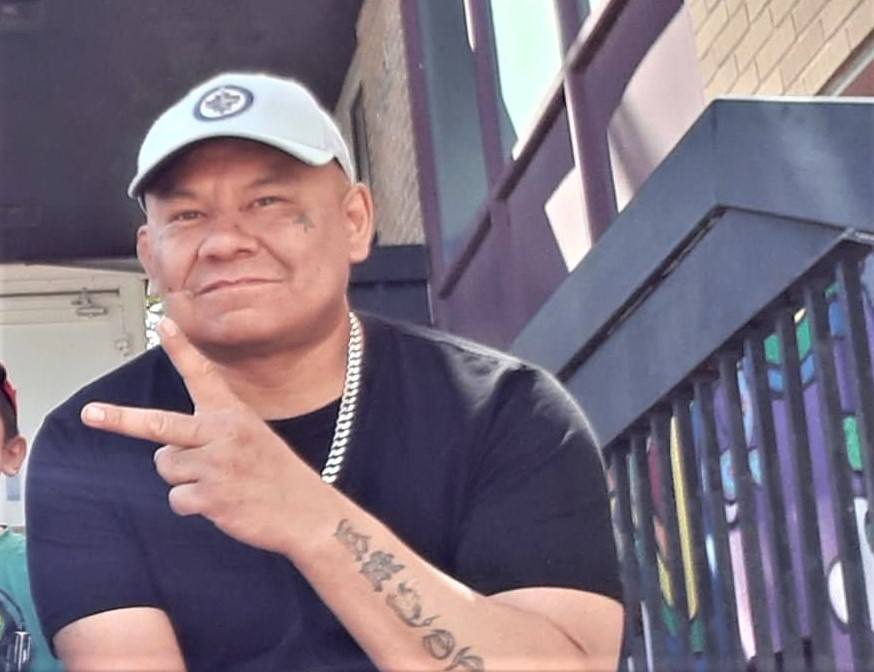On Monday, Aug. 23, Chris Amyotte, a 42-year-old father of seven, died after Vancouver police shot him six times with a bean bag gun.
This death was preventable and the result of an act of police violence. This was not the first time a person asking for help died at the hands of police in Canada.
Nor was it the first time a beanbag gun was used in similar circumstances. In 2019, a 35-year-old unarmed man was shot three times with a beanbag gun in the Vancouver Downtown Eastside.
“Bean bag guns,” publicized as a non-lethal alternative to guns with bullets, should more accurately be described as blunt impact projectiles because these large silicon bullets can cause intense pain, internal injury and death.
The media coverage following Amyotte’s death reported that he was clearly “unarmed,” had just been bear-sprayed, and was pouring milk obtained in a corner store over his head to neutralize the intense burning pain. Given the circumstances, he behaved as many of us would have.
He was also described as “begging for help.” So why, instead of help, was he shot six times?
Police violence is a health issue
As nurses with the Harm Reduction Nurses Association, we have experience and expertise supporting people in crisis. We witness escalating harms in our communities at the hands of police services. We regard the death of Chris Amyotte and increasing police-involved deaths in Canada as nothing short of state violence. Police violence threatens public health, impacting population health and making it impossible for communities to grow and thrive.
Following the 2020 death of American George Floyd at the hands of Minneapolis police officers, many Canadians voiced their gratitude that we did not have the same problem in Canada.
This is false. We have our own problems with police violence disproportionately impacting Black people, Indigenous people and people of colour, and people who are living with mental health and substance use issues. We just do not keep track of it very well. Police violence in the low-income areas of Canada are evidence of the disproportionate trauma inflicted on a daily basis.
Physical and psychological trauma perpetuated by law enforcement harms communities. Large-scale police operations in cities across Canada are mobilizing police to control, coerce and displace people experiencing homelessness.
The displacement of people living in encampments and sheltering outdoors violates their rights, the UN Special Rapporteur on the Right to Housing found in the report "A National Protocol for Homeless Encampments in Canada." This protocol states “Relocation must not result in the continuation or exacerbation of homelessness, or require the fracturing of families or partnerships” but that’s exactly what police are doing when they violently displace people who are without a home.
Indigenous people, who disproportionately experience homelessness in urban areas, are also more likely to be shot and killed by police.
Why would someone whose possessions are repeatedly seized and disposed of by police, someone who sees members of their own community injured and killed by police, trust that law enforcement could also have their best interests in mind?
The issue of police violence is relevant to nursing because social justice is a health care issue. Police violence is a threat to basic rights like housing, education and access to services like health care, and increases the risk of death and chronic disease.
A call to action
There are various ways to get involved and take a stand against police violence. As nurses we are patient advocates and activists. Police violence is a threat to individual health and community health. People are being physically injured and dying as a result of police action and communities are being traumatized day after day, unable to trust those who are publicly funded to “keep communities safe.” But what communities are being kept safe?
The Harm Reduction Nurses Association supports calls to action to end police violence already made by human rights experts, legal experts and communities dealing with police violence. We support calls for a national database that tracks instances of deadly force, including race and gender-based data. We call for legislative reforms to police acts that give independent and transparent civilian-led police oversight organizations jurisdiction to implement recommendations of investigations.
Most critically, we call for defunding of police services, reallocation of funds into trauma-informed and culturally safe crisis de-escalation supports, alongside social, health and housing systems that improve the overall health of communities.
As nurses we must stand up against violent and discriminatory police practices that target Indigenous people, people of colour and people with mental health and substance use issues. We need to advocate for accountability when ineffective and harmful law enforcement practices are used under the guise of helping communities.
We live in a country that claims to be a leader in human rights. When calls for help are responded to with gunshots and silicon bullets it is time to use our power to make a change. ![]()
Read more: Indigenous, Health, Rights + Justice
















Tyee Commenting Guidelines
Comments that violate guidelines risk being deleted, and violations may result in a temporary or permanent user ban. Maintain the spirit of good conversation to stay in the discussion.
*Please note The Tyee is not a forum for spreading misinformation about COVID-19, denying its existence or minimizing its risk to public health.
Do:
Do not: